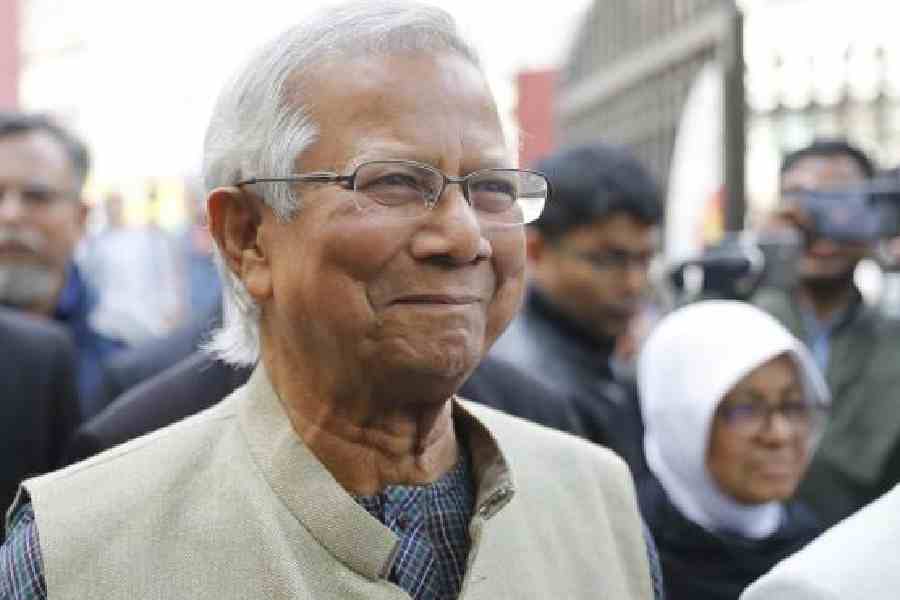Bangladesh’s anti-graft agency on Thursday submitted a charge sheet against Nobel laureate economist Muhammad Yunus on a fresh corruption charge, days after a court granted him bail in a case for violating labour laws.
The Anti-Corruption Commission (ACC) accused the 83-year-old economist and 13 others of misappropriating around Taka 25.22 crore (approximately $2.29 million) of Grameen Telecom Workers’ Profit Participation Fund.
Yunus is the chairman of Grameen Telecom — which he founded as a non-profit organisation — while the co-defendants include its directors, managing director and employees’ trade union leaders.
“We have filed the charge sheet against him (Yunus) and 13 others before the Metropolitan Senior Special Judge’s Court of Dhaka,” an ACC spokesman told reporters.
The court has set March 3 for an indictment hearing of the case.
Law minister Anisul Huq rejected allegations of harassing Yunus, saying the government did not fabricate any false cases against him.
“Dr Yunus was warned and advised to prevent these violations, but he ignored them. So, the labour department filed a lawsuit,” Huq said. “No one is above the law, and if someone commits a crime, they must face the law,” the minister said.
Earlier, ACC secretary Mahmub Hossain said the proceedings against Yunus were initiated based on complaints against him by the department of inspection for factories and establishments, and the statutory graft agency filed the charge sheet after a long investigation.
Yunus won the Nobel Peace Prize in 2006 for his anti-poverty campaign, earning Bangladesh the reputation of being the home of microcredit through his Grameen Bank which he founded in 1983.
He faces over 150 other cases, including major corruption charges that could see him jailed for years if found guilty. The economist denies all wrongdoing.
Last week, an appeals court granted bail to Yunus, who was sentenced on January 1 to six months in prison for violating the country’s labour laws.
The court also agreed to hear an appeal against his sentencing.
Thursday’s development came days after more than 241 global leaders, including over 125 Nobel laureates, expressed their concerns over the “continuous judicial harassment and potential jailing” of Yunus in a third open letter to Prime Minister Sheikh Hasina.
Irene Khan, the UN Special Rapporteur for the Promotion and Protection of the Right to Freedom of Opinion and Expression, called the January 1 verdict “a travesty of justice”.










